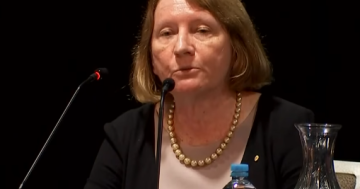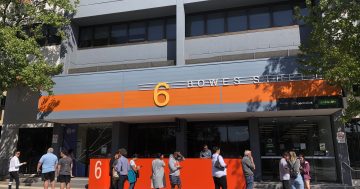
Last week a senate inquiry started examining the impact of the Department of Human Services’ roll out of the infamous ‘robodebt’ program which has seen thousands of Australians, including many in the ACT being asked to prove that they did not have a debt owed to Centrelink. While this program has been in place for some time, the Department has removed human oversight from the system and automation has reportedly resulted in a huge increase in debt notices being issued. Of these, it is believed about a fifth of people who have been targeted do not owe any debt. The process to query and dispute the debt is onerous and difficult, there are huge difficulties in contacting Centrelink, there are reports of Departmental staff being directed not to process reviews, and there are reports that debts have been forwarded to debt collectors before individuals were aware they even owed a debt (particularly given notification was done electronically).
The Inquiry has heard from many community services who are dealing with the fall out of this process. The ACT Council of Social Service provided detail of some of the impacts locally, including financial counselling services seeing a small cluster of people who have required support given the potential impact of the potential debt. They also reported that people have been contacting welfare and legal services to challenge the debts, and noted that local community services are dealing with the emotional fall out from people being told out of the blue that they have large debts. Key concerns they raised included reports that people are paying debts they don’t owe due to fear of retribution if they enter into a dispute with Centrelink and significant difficulties with the process of challenging these debt notices.
The majority of people who have been caught up in this process are those who have been moving in and out of employment. Beyond the specific problems with the debt assessment process, this points to the changing nature of employment in Canberra, which is reflecting trends across the country. Canberra is moving from a public service town to one where there are more and more people who are in precarious, casualised and part-time employment. As the ACT Council of Social Service pointed out in their evidence, there are not enough jobs to place our citizens that are willing and able to work – for example in January 2017 there were around 5000 jobs advertised in the ACT, while over 8000 people were looking for work.
The people impacted in Centrelink’s Robotdebt debacle are those who are trying to work but who are not able to find enough employment to earn a decent income. It demonstrates that there is a growing number of people in the Canberra region who do not have regular and stable employment. People need more than an income safety-net and are particularly vulnerable when they are caught up in these kind of actions. Locally we need to make sure that we have programs in place to support people affected by these types of actions. We need to support people through concession programs when income doesn’t stretch far enough to access essential services – particularly when they may be having to pay back alleged debts that are under active review. It means ensuring that there are financial counselling services available to help people with budgeting on very limited incomes that may be reduced because of inadvertent over payments in income support. It also means ensuring that people on low incomes can access legal services that can assist them to challenge debts that they may not owe.
I think we need to be doing much more locally to respond to the changing nature of work. What do you think?



















